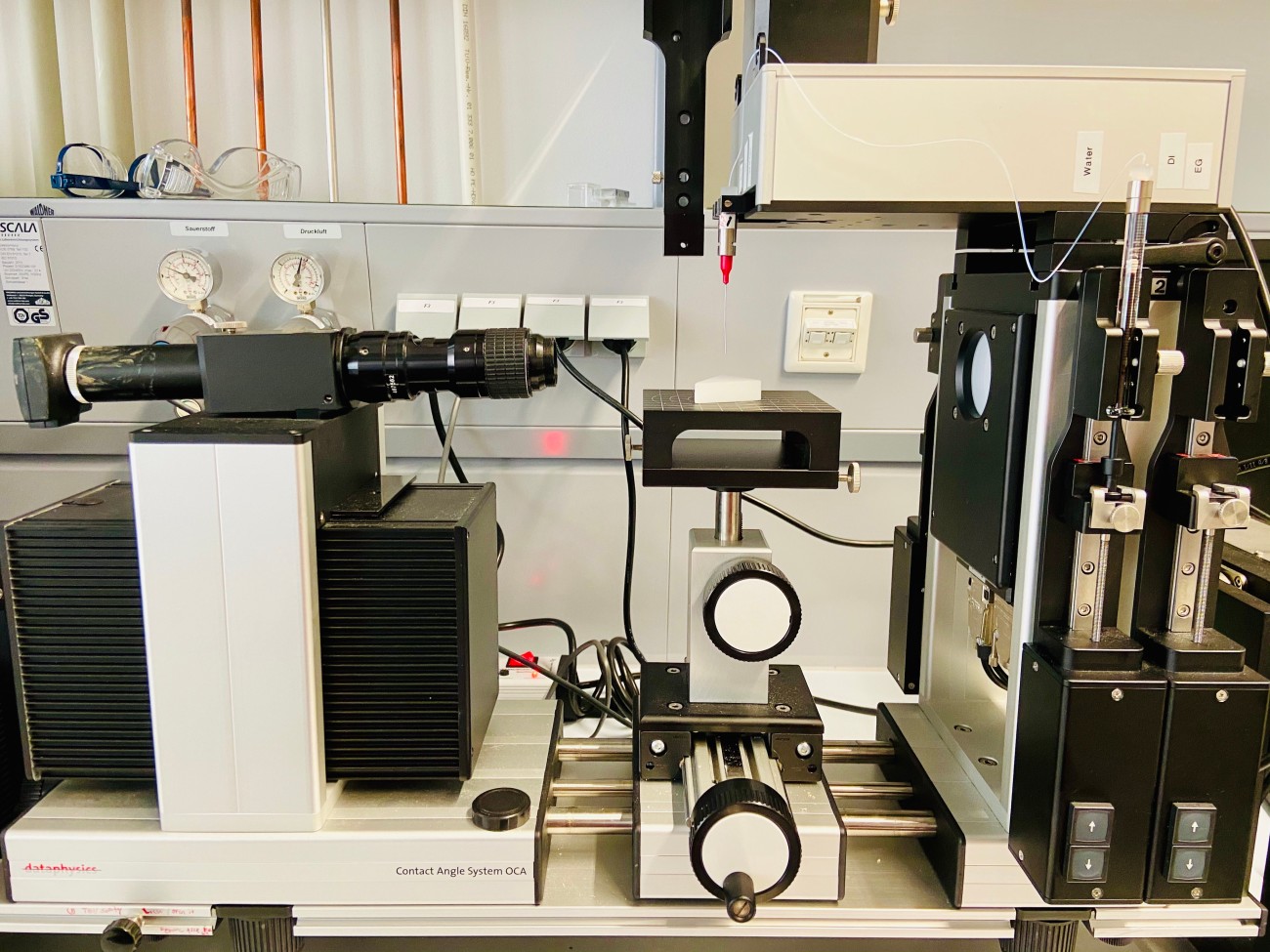M.Sc. Anna Lisa Eichhorn (geb. Hawlitschek)
Contact
eichhorn@pos.tu-...
work +49 6151 16-21922
Work
L2|07 206
Peter-Grünberg-Straße 16
64287
Darmstadt
|
| Investigation of the influence of defects on the nanomechanical properties of graphene by multifrequency atomic force microscopy |
| 1 |
Anna Lisa Eichhorn and Christian Dietz: Simultaneous Deconvolution of In-Plane and Out-of-Plane Forces of HOPG at the Atomic Scale under Ambient Conditions by Multifrequency Atomic Force Microscopy (2021) Adv. Mater. Interfaces 2021, 2101288 DOI: https://doi.org/10.1002/admi.202101288 |
| 3 |
Anna Lisa Eichhorn und Christian Dietz In-plane and out-of-plane nanomechanical characterization of HOPG at the atomic scale 8th Multifrequency AFM Conference, Okt. 2020, Madrid (virtuell) Winner of 2nd poster award |
| 2 |
Anna Lisa Eichhorn and Christian Dietz In-plane and out-of-plane nanomechanical characterization of HOPG at the atomic scale Atomic Force Microscopy Workshop at KIT, Febr. 2020, Karlsruhe |
| 1 |
Anna Lisa Eichhorn and Christian Dietz Sensing in-plane and out-of-plane nanomechanical Surface and Subsurface Properties of Polymers DPG-Frühjahrstagung der Sektion Kondensierte Materie, Apr. 2019, Regensburg |
|
| In this project, a method will be developed that visualizes mechanical sample properties directed out-of-plane and in-plane. Thus, a scanning force microscopy based multifrequency technique will be realized where the feedback parameter for the topographical acquisition is the amplitude of the flexural eigenmode of the cantilever similar as for the intermittent contact mode. In addition, a second flexural and a torsional oscillation are photothermally excited. The elastic and dissipative interactions can be extracted from the frequency shift and excitation amplitude of the respective modes. The method will be employed on graphene to determine the nanomechanical properties across the basal plane of this extraordinary material. The change of the mechanical properties with artificially induced defects is the object of investigation. In particular the following question should be addressed: How does the local elastic modulus of graphene change by the introduction of sp3- defects and vacancies. Is it feasible to establish an empirical relationship between nanoscopic and microscopic mechanical properties of graphene? This is particularly important to assess if graphene is suitable as component for electronic and mechanical devices. Additionally, it should be investigated if the nanomechanical properties of defects change with time due to aging in certain environments. |


